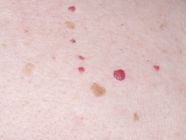Shingles (herpes zoster) is a viral condition that causes painful rashes and blisters—and it can be extremely uncomfortable. While there is no definitive cure for shingles, early treatment can significantly reduce symptoms, shorten the course of the illness, and lower the risk of complications. (1)
What is the treatment for shingles?
The goal of treatment is to reduce pain and duration of the infection. This is achieved with antiviral medications and pain relievers.
Antiviral medications help stop the virus from multiplying, which speeds up healing of the rash and reduces the severity and duration of pain. These medications work best if started within 72 hours of rash appearance, but they may still be helpful if blisters are still forming. (2)
Oral antiviral medications include: (2)
- Acyclovir (Zovirax): 5 times daily for 7 days.
- Valacyclovir (Valtrex): 3 times daily for 7 days.
- Famciclovir (Famvir): 3 times daily for 7 days.
🔹 At Al-Ahli Hospital, our dermatology specialists will create a tailored plan including the right medications and supportive care to help you recover and return to your daily life faster and more comfortably.
Pain relief for shingles
These methods can help relieve pain and discomfort: (3)(4)
- Over-the-counter pain relievers such as paracetamol or ibuprofen
- Applying cold compresses to the affected area
- Using topical numbing creams or gels
- Calamine lotion or anti-itch creams
- Wearing loose cotton clothing to avoid rubbing the rash
- In severe cases, the doctor may prescribe stronger medications like gabapentin, amitriptyline, or even corticosteroid injections
When does shingles go away?
In most cases, shingles rash begins to heal within a week and resolves completely within 2 to 4 weeks. Pain usually subsides within 1–2 months. However, in some people, it may last for months, years, or even a lifetime. This condition is called postherpetic neuralgia (PHN). (5)
Why does the pain persist after the rash fades?
PHN occurs due to nerve damage caused by the shingles virus. It can be severe and long-lasting, especially in older adults or those with weakened immune systems. It affects around 10–20% of shingles patients, and the risk increases with age and the severity of the original infection.(5)
If you experience prolonged pain, your doctor can recommend medications such as gabapentin (Neurontin), certain tricyclic antidepressants, or other pain management therapies. (5)
Frequently Asked Questions
Can shingles return?
Most people get shingles once in their lifetime. However, in 1–9% of cases, it can return. (5) (6)
You can reduce your risk of shingles recurrence by getting the shingles vaccine, which is available in Qatar for adults aged 60 and above, or younger adults with weakened immune systems. (2)
Even if you develop shingles after vaccination, the illness is likely to be milder with a lower risk of developing PHN. (2)
Is shingles contagious?
Yes, the virus that causes shingles (varicella-zoster virus) can be transmitted to people who haven’t had chickenpox or haven’t been vaccinated—but they would develop chickenpox, not shingles. (4)
Transmission can occur through direct contact with the open sores of the shingles rash, or through inhaling virus particles released from ruptured blisters, though this is less common. To protect vulnerable individuals such as newborns, pregnant women, and immunocompromised people, it’s essential to avoid contact with others until the blisters completely dry out. (4)
Concerned about shingles or prolonged pain?
Book a consultation today with the dermatology team at Al-Ahli Hospital. Our experts offer accurate diagnosis, advanced antiviral treatments, and comprehensive care to help you recover quickly and comfortably.
References
- Medscape - Herpes Zoster Treatment & Management
- UpToDate - Patient education: Shingles (Beyond the Basics)
- Familydoctor - Shingles
- Mayo Clinic - Shingles
- American Academy of Dermatology Association - Shingles: Diagnosis and treatment
- National Library of Medicine (NIH) - Herpes Zoster Recurrence: A Narrative Review of the Literature - PMC.






